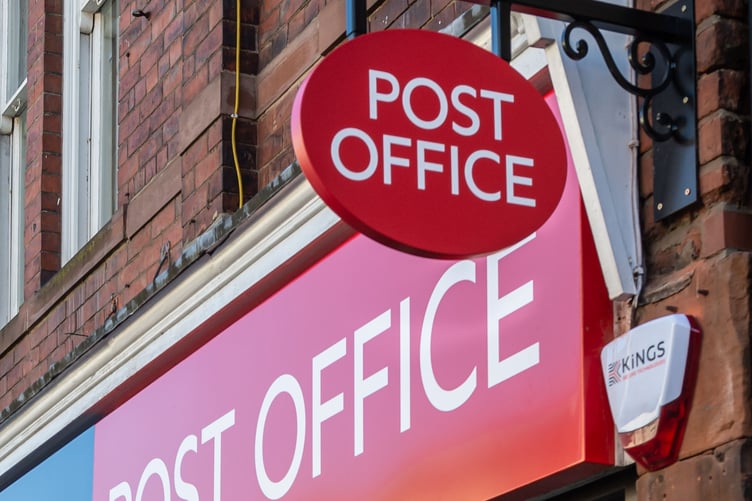WHEN a large brown envelope landed on her doormat Penny Williams was puzzled.
The Cornwall Sub Postmistress from Manaccan on the Lizard, who had been falsely accused of stealing thousands of pounds by the Post Office, and forced into bankruptcy, was still trying to piece together what had happened.
Having worked for many years in the City of London, she knew only too well that IT systems had glitches and innocently assumed the Post Office system was the same.
It turns out that the envelope - sent anonymously or maybe even to the wrong address, she suggests - contained three reports that would convince her that her suspicions were correct.
The Horizon system, which was reporting £20,000 missing from her accounts, was hiding something much more sinister.
Transactions were occurring on a regular, almost scheduled basis, on her account, removing identical amounts of money - and she had no idea where they were going.
Quickly she realised, that the amounts which appeared on account reports - reports the Post Office had refused to share with her - were being taken when the system was being accessed outside of her working hours or at times when she was away or on bank holidays.
The brown envelope incident came to light on the Cornish leg of the Post Office Scandal tour by broadcast journalist Nick Wallis. Nick has spent a decade bringing the scandal to light and has written a book to tell the story.
Penny, his guest for the event in Launceston, says: “The computer reports in the envelope were on the type of computer paper with holes down the side. They showed the logging in and out at the branch; the stock we were holding from 1p, to £50, our stamps and a record of all transactions.
“We knew that everything had been fine from the audit 18 months earlier, but we could see money coming out of the branch when we weren’t there.
“There were about a dozen amounts going out of the accounts each week - the same amount each time. The potential for fraud was so obvious but it still sounded like a computer error to me”.
Tour host Nick Wallis, who has been involved in the televising of the scandal from the initial BBC Inside Out South report to two Panorama investigations is clear, the fraud was ever present. He said: “The system controls were so lax. You could easily write a random routine to cream off anything from £10 to thousands of pounds without anyone noticing.”
Penny, who has been running the local pub and shop in her village and had only taken over the Post Office to secure the accommodation next door, says, “It was all fine for a while and then it catastrophically wasn’t. The pack of cards that was my business just collapsed.”
She became one of the 555 sub-postmasters who won the first group litigation case in 2019, and who are still waiting for any real compensation.
She remembers: “People stopped coming to the shop, and the pub. And I was heading to bankruptcy court. We were eventually evicted from the pub and the Post Office and we camped out in our cottage. When the Post Office first came to tell us there was a shortfall, we were happy to sit down with them and go through the reports to see where the error was, but they said no - it doesn’t work like that.”
The Post Office told her she was liable for the money as per her contract. She asked them again for the Horizon reports and this was once again denied. She was told to go to the police station, not to take a solicitor, and to ask to be interviewed under caution.
Penny still feels that she was treated differently because of the work that had already been achieved by Alan Bates, the Sub-postmaster who spent 6 years working on the case after losing his life savings of £100,000. She said, “It was 2012, and by then the Post Office realised they couldn’t do to me what they’d done to other people.”
“I spent every day of that group litigation case reading the transcripts. It was fascinating but horrifying”, she says through her tears. It’s the first time she breaks down admitting to the full scale of what had happened to her and all the other 700 plus affected ex-sub-postmasters.
And sadly she explains, many thought they’d won but it was just the beginning. “The public think justice has been done but there’s been little or no compensation from the group litigation settlement of 2019.”
Compensation is now being sought through the courts for the sub-postmasters who were all self-employed. Many had convictions, lost their life savings, and their livelihoods, some their lives.
Nick Wallis thinks the Post Office is broken. “The value of the Post Office network is now zero. Catastrophic bad decisions over a quarter of a century and mismanagement has destroyed the value of the network and branches and cost north of £1-billion to compensate the sub-postmasters”.
The Post Office Scandal, The Inside Story tour continues through April and May around the country, with the Nick Wallis Post Office Scandal podcast set to return with five more episodes on BBC Sounds.





Comments
This article has no comments yet. Be the first to leave a comment.